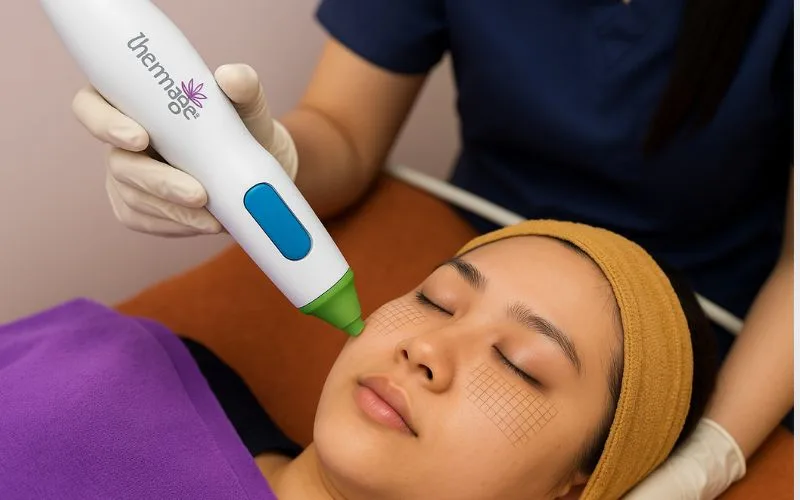Thermage is a popular non-invasive cosmetic treatment that uses radiofrequency energy to tighten and rejuvenate skin. However, can you for Thermage if you have metal implants in your body? if There are critical safety considerations you need to understand before considering this treatment.
Understanding the Basic Risk: Heat Generation
The primary concern with combining Thermage and metal implants centers on heat generation. Thermage works by delivering controlled radiofrequency energy deep into the skin and underlying tissues. When this electromagnetic energy encounters metal implants, it can cause the metal to heat up significantly, potentially leading to serious tissue damage in the surrounding area.
Why Metal Conducts Heat Dangerously
This heating effect occurs because metals are excellent conductors of electricity and heat. When exposed to radiofrequency energy, metal implants can become dangerously hot, creating a risk of burns, tissue necrosis, or other complications in the tissues directly surrounding the implant. The metal essentially acts like a heating element within your body during the treatment.
Electrical Implant Complications
The most serious risks occur with electrical implants such as cardiac pacemakers, cardioverter defibrillators, or any other active implantable medical devices. These electrical devices pose the highest risk because radiofrequency energy can interfere with their functioning, potentially causing life-threatening complications. The manufacturers of Thermage have established that treatment is absolutely prohibited for patients with these types of implants.
Non-Electrical Metal Implant Concerns
For non-electrical metal implants such as joint replacements, dental implants, surgical screws, plates, rods, or breast implants with metal components, the situation is more complex. While these implants don’t have the same electrical interference risks, they still pose the significant heating concern that could damage surrounding tissues. The risk varies depending on the size, location, and composition of the metal implant.
Tissue Damage Potential
The heating of metal implants during radiofrequency treatment can lead to various types of tissue damage. This includes burns to the surrounding soft tissue, potential scarring, inflammation, and in severe cases, tissue death or necrosis. The damage may not be immediately apparent and could develop over time following treatment.
When Thermage May Be Considered Safe
In certain limited circumstances, Thermage treatment might be considered safe for individuals with metal implants. This typically applies when the metal implant is located far from the intended treatment area and proper safety protocols are followed. For example, someone with a knee replacement seeking facial Thermage treatment may be evaluated differently than someone with dental implants seeking neck or jawline treatment.
The safety determination depends on several factors including the type of metal used in the implant, its exact location, the treatment area being targeted, and the energy settings that would be used. Some newer implant materials may also pose different risk profiles compared to older metal compositions. However, these decisions should only be made by qualified medical professionals with expertise in both the specific implant type and radiofrequency treatments.
Even in cases where treatment might be considered, additional safety measures would typically be implemented, such as modified energy settings, careful temperature monitoring, and potentially treating only specific zones while avoiding others entirely.
Alternative Treatment Considerations
If you have metal implants, you should discuss alternative cosmetic treatments with your provider. Ultrasound-based treatments like Ultherapy, laser treatments, chemical peels, microneedling, and injectable treatments may be safer options that can achieve similar aesthetic goals without the risks associated with radiofrequency energy near metal implants.
Pre-Treatment Evaluation Requirements
Always inform your Thermage provider about any implants in your body, including the type of implant, location, date of implantation, and material composition if known. You should consult with both the doctor who placed your implant and your Thermage provider, and potentially a specialist familiar with both the implant and radiofrequency treatments.
Final Thoughts
The safest approach is often to explore alternative cosmetic treatments that don’t carry the same risks. Never undergo Thermage treatment without disclosing all implants to your provider, and seek multiple professional opinions if you’re considering treatment with implants present. When in doubt, prioritize your safety over cosmetic goals and consider proven alternative treatments that are compatible with your implants.
Remember, cosmetic treatments should enhance your well-being, not put your health at risk. With metal implants in your body, there are many safer alternatives to achieve your aesthetic goals without the potential complications that Thermage might present.
